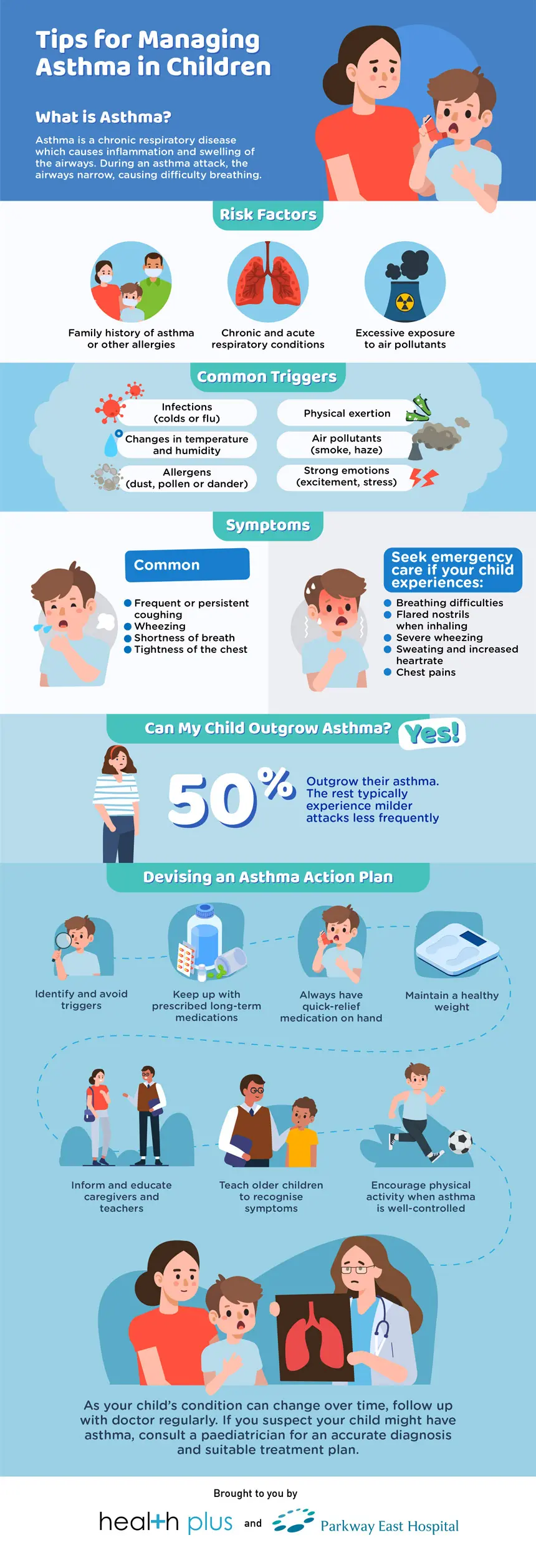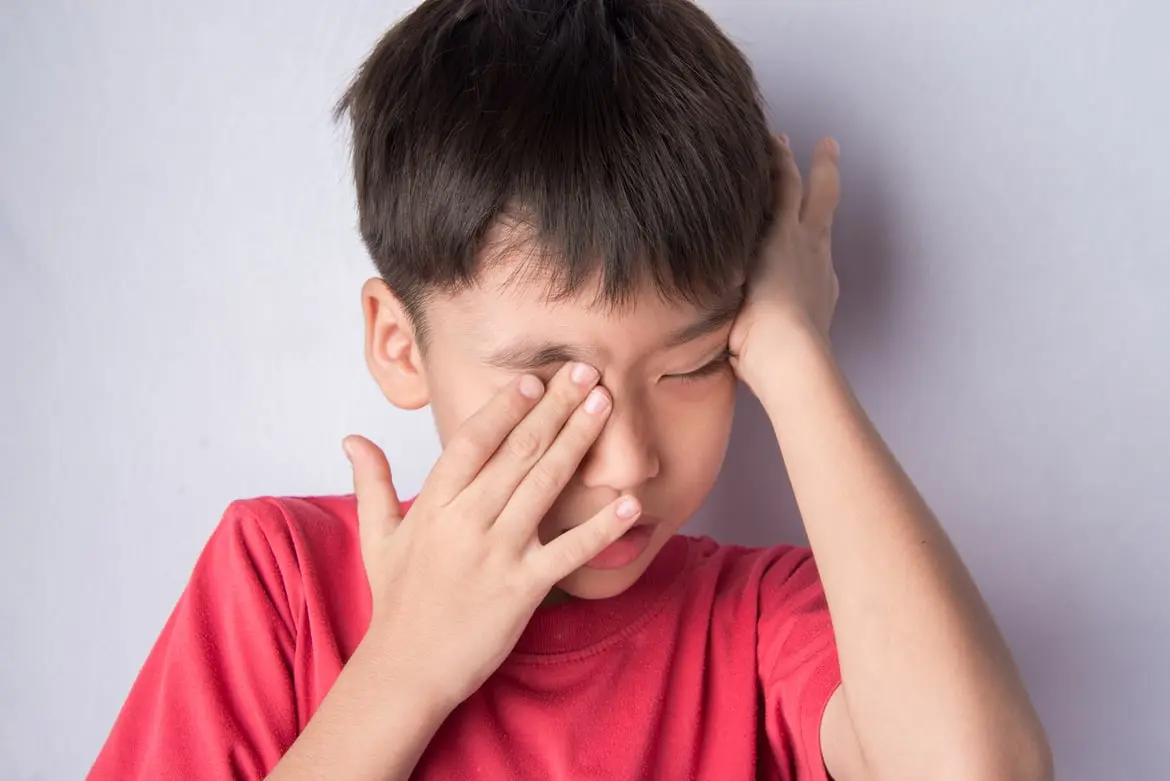What is childhood asthma?
While asthma in children is essentially the same condition as asthma in adults, childhood asthma does present its own set of challenges. For instance, missing too many school days, or children who feel alienated from their peers because they can’t run and play as freely.
Asthma is a chronic respiratory disease which causes inflammation and swelling of the airways. During an asthma attack, these airways swell up, narrow the flow of air and cause difficulty breathing.
In Singapore, about 1 in 5 children suffer from childhood asthma. It can appear at any age and symptoms can be similar to those caused by conditions such as the cold and flu, so an accurate diagnosis is crucial for effective long-term management and better quality of life.
What causes childhood asthma?
Factors that are linked with childhood asthma range from hereditary to environmental. For starters, children who have family history of asthma or other allergies are more predisposed to developing asthma.
Also, if a child has respiratory issues such as chronic runny nose, inflamed sinuses from a young age, or acute conditions such as pneumonia or bronchitis, they may be at higher risk.
Excessive exposure (including prenatal exposure) to cigarette smoke or other air pollutants can also increase a child's likelihood of developing asthma.
While the exact causes of childhood asthma have yet to be fully understood, it is perhaps heartening to know that many asthma attacks can be prevented by identifying and avoiding the triggers that cause them.
Asthma triggers vary from child to child, but common ones include:
- Infections – common cold or flu
- Allergens – dust and dust mites, pollen, mould, pet fur and animal dander
- Air pollutants – cigarette smoke, smoke from open fires, paint fumes, haze
- Sudden changes in temperature and humidity – going from an outdoor playground into an air-conditioned mall, for example
- Physical exertion – depending on how well the asthma is managed, exercise or rigorous play may trigger attacks
- Strong emotions – similarly, if asthma isn't well-controlled, too much excitement, stress, anxiety, or crying can also trigger attacks
What are the symptoms of childhood asthma?
Identifying a child's asthma triggers makes it easier to be proactive and catch a potential attack early. Common symptoms to watch out for:
- Frequent, or persistent coughing
- Wheezing, or laboured breathing
- Shortness of breath
- Tightness in the chest
Seek emergency care immediately if you see these severe symptoms:
- Breathing difficulties
- Flared nostrils when inhaling
- Severe wheezing
- Sweating and increased heart rate
- Chest pain
Can childhood asthma lead to other conditions and complications?
During asthma attacks, the airway lining becomes inflamed and swells up. The airway wall muscles go into spasms, and thick mucus clogs up their airways. If allowed to go on unchecked, childhood asthma can cause:
- Increased severity of cold and flu symptoms
- Tendency towards bronchitis and pneumonia
- Delayed recovery from respiratory infections
- Permanent damage to the lungs
Over time, poor quality of sleep, fatigue, and poor ability to play or take part in sports may impact a child's mental, physical, and social development. School-going children who miss too much classroom time may fall behind academically as well.
Will my child outgrow asthma?
While there is no cure for asthma, the good news is that only 5% of the population have asthma as adults. This means that your child is more likely to outgrow childhood asthma than not. About half of childhood asthma patients report milder and less frequent attacks by their teenage years, while the remainder no longer experience any.
So do stay positive, and work on helping to manage your child's asthma in the meantime.
How can I manage my child's asthma?
If your child has been diagnosed with childhood asthma, continuous management and adhering to a treatment plan is key. Work with your child's doctor to devise an asthma action plan, involving your child as much as possible. The plan should include the following, which can also be incorporated into everyday life:
- Identify your child's asthma triggers and minimise exposure to them.
- Ensure your child takes all long-term control medications (such as inhaled corticosteroids) as prescribed by the doctor.
- Always have your child’s quick-relief medications (such as Ventolin inhalers) on hand and use them as directed.
- Inform your child's caregivers and teachers of their condition and how to assist your child during an asthma attack.
- Teach older children to recognise their symptoms and know what to do.
- Once your child's asthma is properly controlled, encourage them to exercise and play sports. Regular physical activity helps improve lung function and overall health.
- Help your child maintain a healthy weight, as being overweight can worsen asthma symptoms.
Finally, as your child's condition can change over time, follow up with medical appointments regularly so that the doctor can adjust treatment accordingly.
If you suspect your child might have asthma, consult a paediatrician for an accurate diagnosis and suitable treatment plan.












